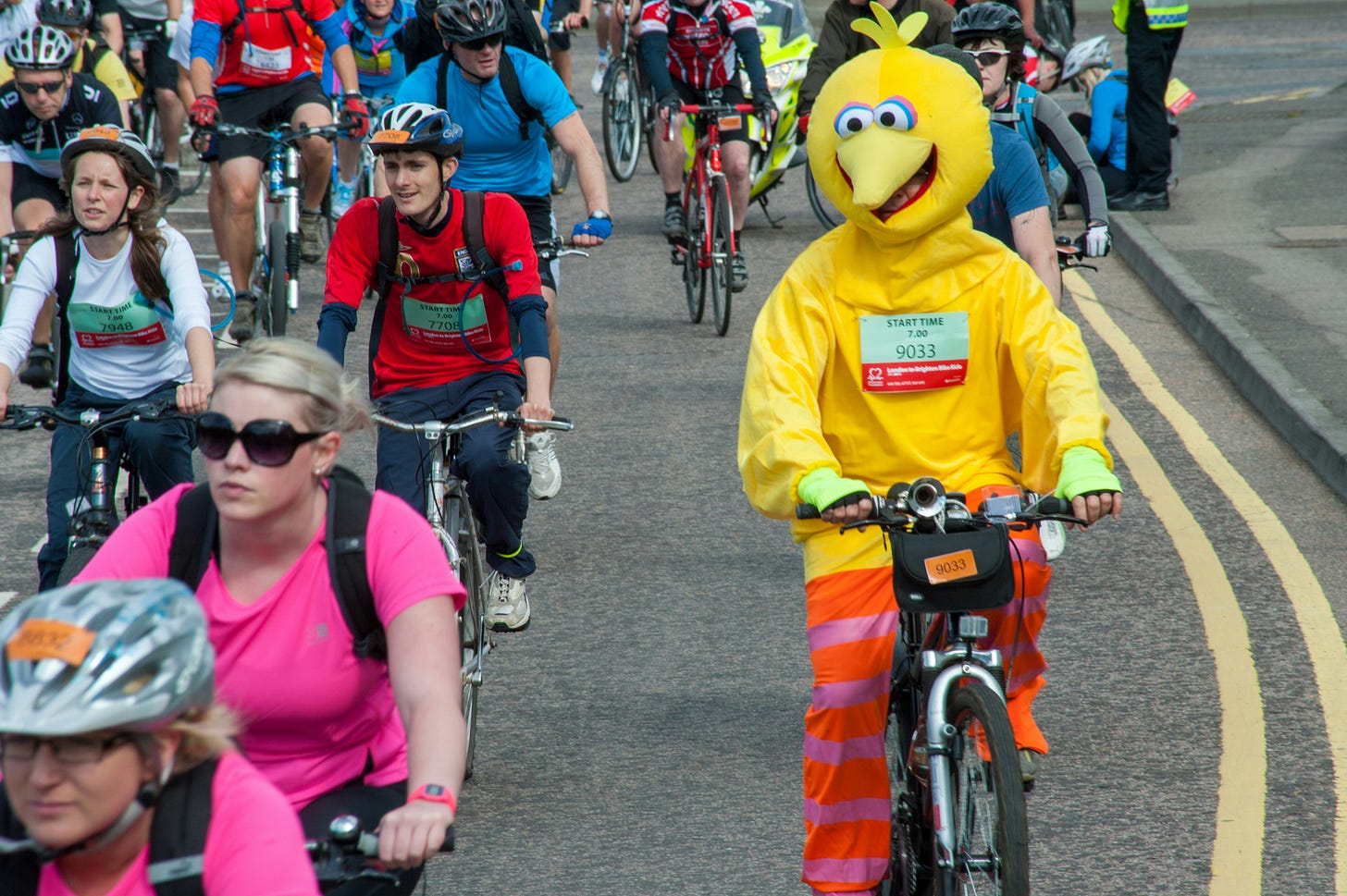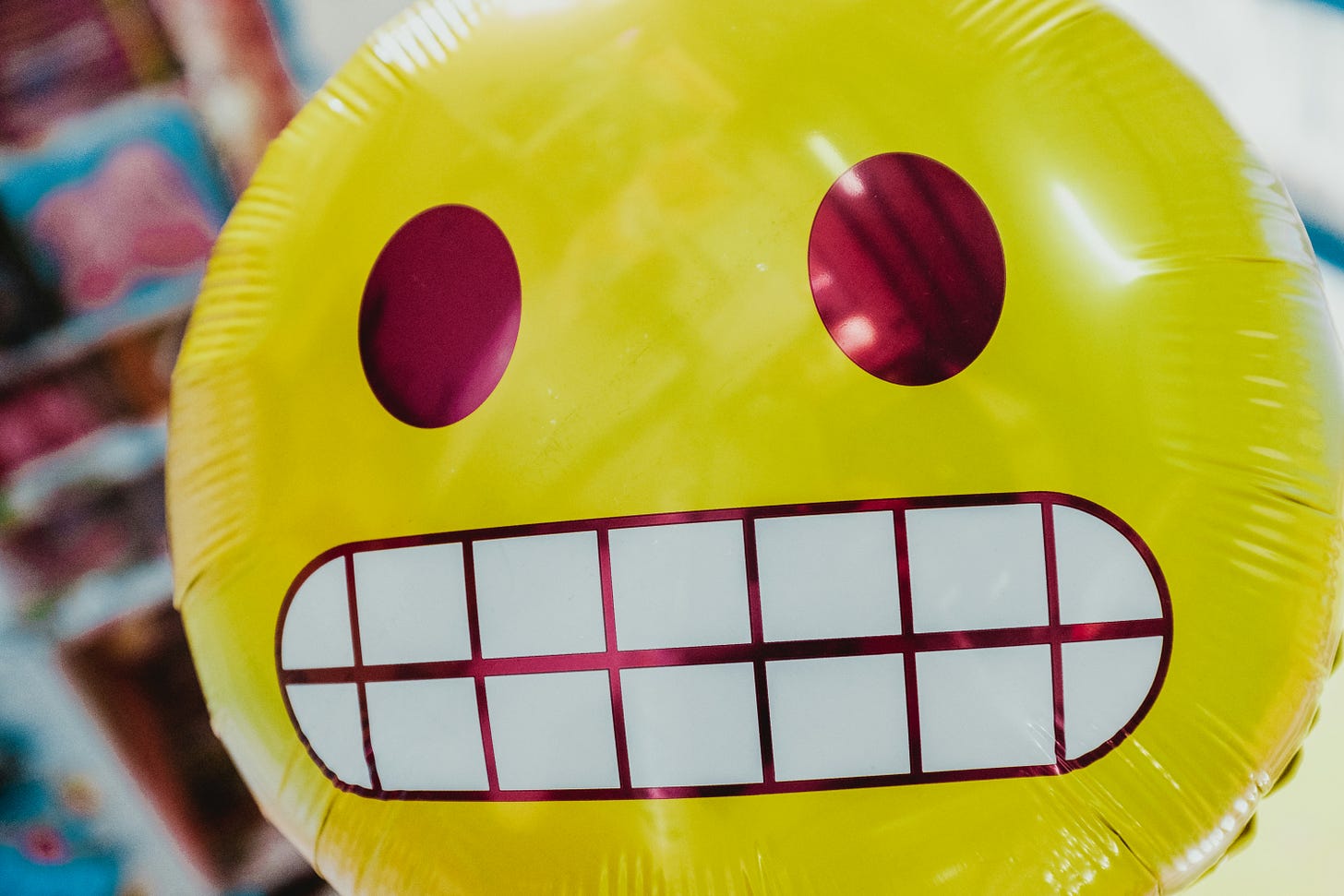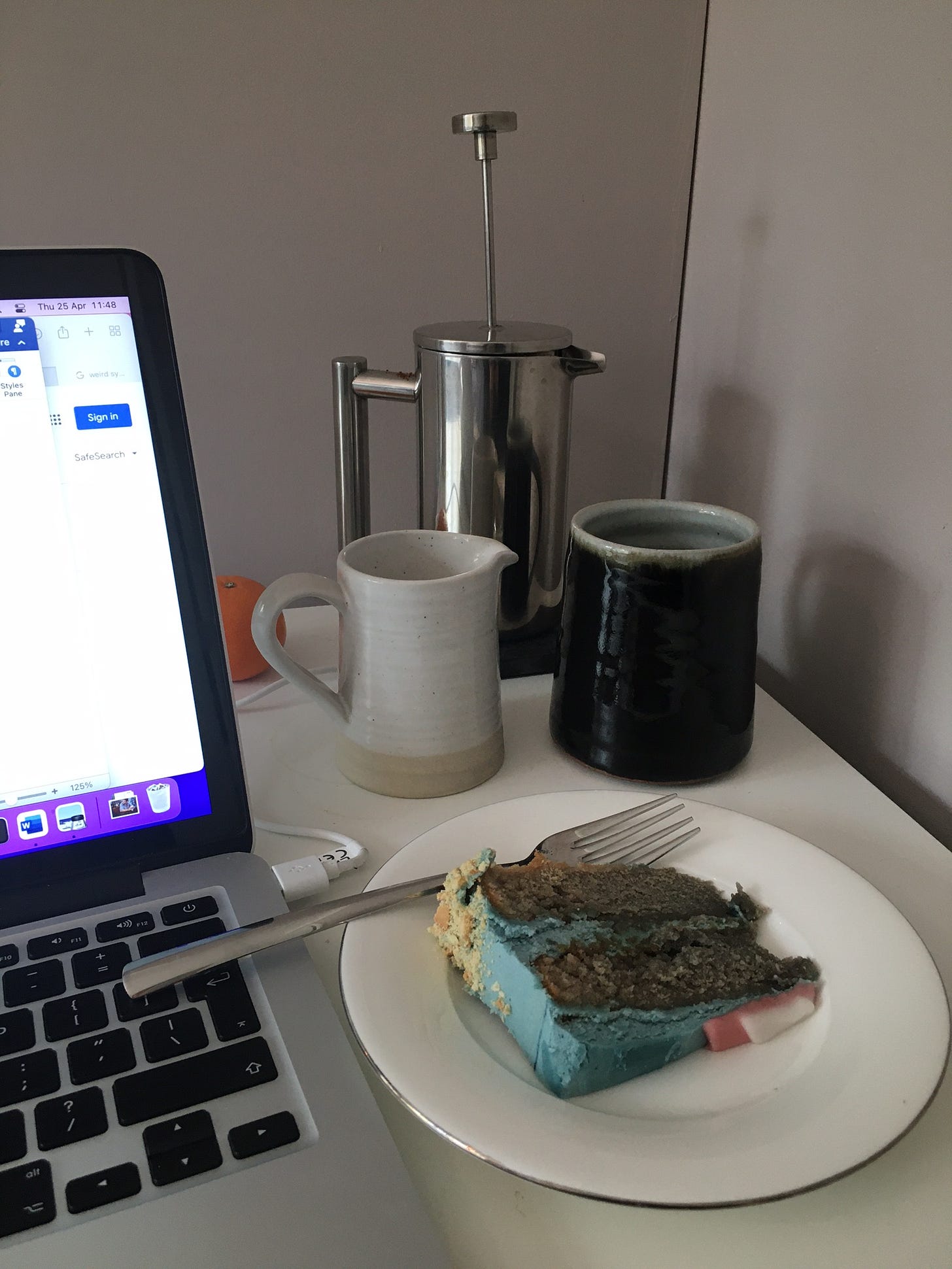In the time of chimpanzees I was a monkey
How disability stigma made my journey as a mobility aid user harder than it needed to be

This post took me fricking ages to write, and I still don’t think I’ve quite managed to articulate everything I wanted to say. Frankly I got a tad depressed and overwhelmed about the subject matter. I kept having to leave it and come back later. It forced me to sit with some pretty uncomfortable truths. It feels good to be getting ready to click the ‘send to everyone now’ button and not have to think about it for a while.
In an ideal world, making the transition from being currently able, to living with an acquired physical disability would be easier than it is. Losing function and having my body let me down, and coming to terms with the progression of my MS would never have been without challenges. But as I came to accept slowly that mobility aids were necessary, it hit home that actually going out and using them would be so much easier without the associated stigma.
⭐️ With that growing acceptance came a feeling that was more pervasive and a little more complicated than the discomfort of standing out from the crowd. For the reality is that on occasion folks will act in mystifying ways around me or treat me differently because I have a disability. ⭐️
Christ, people (Not you reader, but you know, those people!), this MS thing is hard enough without the strange behaviour to contend with as well. I’ve had enough awkward encounters in my relatively short time as a disabled person for me to know that this is something I’ll continue to have to deal with. I am able to chalk it up to experience, to use it as something to learn from, to tease out the humour from it.
But sometimes it really hurts.
When I started to need glasses 30 or so years ago, my only concern alongside the benefits of knowing that I would now be able to read numbers on buses and not blank people in the street, was to choose a pair that looked good and suited me. I didn’t worry what anyone else thought, and I grew up in an era when ‘four-eyes’ was a standard insult for those in need of glasses, something sewn into the fabric of 1970s playground banter. By the time I needed glasses, there was more choice than the standard issue National Health Service frames that seemed to be the only option for the kids that needed them at school. The very frames that attracted so much derision back then are retro vintage now, and somehow, the world moved on.

I hope there will be a similar shift for mobility aids of all kinds. As someone relatively new to the disability world, I can feel movement on this. The disability community works hard to turn the tide with social media representation; images of daily life and being out and about with mobility aids. Some great companies have recognised that people with disabilities can be as design hungry as anyone else and that many of us, if we have the financial means, want aids that match our style. This visibility, awareness and advocacy will surely keep pushing the pace of change.
However, all this positive action is happening alongside the negative attitudes about disability that are still powerful in society. But why does this stigma and negativity even exist at all?
Ableism is a word seen a lot in writings and online postings about disability. Here’s a popular definition from Urban Dictionary:
“Ableism is the discrimination or prejudice against people who have disabilities. Ableism can take the form of ideas and assumptions, stereotypes, attitudes and practices, physical barriers in the environment, or larger scale oppression. It is often unintentional and most people are completely unaware of the impact of their words or actions.”
And I have experienced it, some examples, not an exhaustive list, more like my top 5 on the ableism charts :
⭐️ At 5 - Lack or inconsistency of dropped curbs for accessing footpaths or crossing roads (physical barrier caused by lack of consideration and regulation by local planning).
⭐️ At 4 - Someone parking across a footpath leaving no space for me to get past with my Alinker walking bike (physical barrier caused by lack of awareness or thoughtlessness of an individual).
⭐️ At 3 - A restaurant using the accessible toilet as a storeroom (as above but by the people running that business).
⭐️ At 2 - Being ignored in favour of my non-disabled friend despite me clearly being the person paying for our coffee as I wave my debit card around (Ignorance? Fear? Assumptions?).
⭐️ And coming in at 🥇 – The careless words and general weirdness around my disability. The language used around disability deserves a special focus. I’ll get into that in a future post.
🙏 At least no one has asked if they can pray for me yet, but I’m sure it’s just a matter of time, and if they do it will join number 1 at the top of the charts.
Since the “you’re so brave for simply existing” incident that accompanied an early outing with my walking bike (see my previous post), I’ve had lots of, “wow, what a cool bike” and other such enthusiasm. That’s great. And in reality the majority of people are totally normal around me. But it’s the uncomfortable and bizarre takes that are hard to handle, have the potency to disarm, and if you don’t take great care, have the capacity to make you feel ‘less than’.
This is a really good one, verging on the absurd. I'm rolling along on the Alinker. Here comes my assailant, a woman, sixty-ish, sporting Sunday casuals, walking towards me. Such a shame, it all started off quite nicely, as it usually does:
“Ooh I like your bike”. She says. Then:
“I think I could do with one myself, I can’t ride a bike”.
Maybe I’ll get better at judging which way the conversation is going to go, but I replied, something like:
“Well it’s been a game changer for me, if you’ve got problems with mobility it can really help”.
Her response, from leftfield:
“Well, at least its better than a…. [big pause] …. you know what”.
She raised her eyebrows, and I think I even detected a wink. Did she mean a “Wheelchair”? What else could she have meant? A gold-plated horse drawn carriage? A sedan chair? A water buffalo? It must have been a wheelchair. In this instance the mobility aid whose name cannot be spoken. The Voldemort of the mobility aid world? The equivalent of bad luck attached to speaking the name of “The Scottish Play”. If you say “Wheelchair” you might ‘end up in one’. Cursed.

Encounters like this might go some way to answer the question I asked so many paragraphs ago, about why this stigma even exists at all? Is there something about disability that just gets some people right at the visceral level? It’s something we could all become and that’s scary, and in turn does that help to feed ableism?
We all know people who simply don’t know when to shut the fuck up in any situation. They just can’t hold it in. In readying myself for such things as I started my mobility aid journey my educated guess was that for some, my very presence with a hobbly walk or a mobility aid would engender some difficult feelings in themselves. But sometimes it doesn’t manifest in any words being spoken. Whilst mind reading is a game I know I shouldn’t play, I don’t think I’m mistaken that there is a look I sometimes get from people that could be expressing pity, fear, sadness and god knows what else. Or sometimes they look away. Or maybe I’m totally wrong and they just farted and are feeing ashamed of themselves.

When we live in a world where ableism or disability stigma exists, it feels there’s a responsibility to name it, to call it out, to challenge it. Its not always easy in the moment. We’re all carrying its legacy to a greater or lesser degree, myself included. I definitely remember feeling uncomfortable around a woman I met who was a wheelchair user when I went for a job interview the year after my MS diagnosis. I sincerely hope my discomfort didn’t show. One of my biggest fears around diagnosis was that I would need a wheelchair. And I realise now that it’s a widely accepted negative that really shouldn’t be.
I now hope for a world where at least the existence of wheelchairs or other mobility aids is neutral, and at best seen as great tools for life without full mobility on legs. A bit like glasses being great tools for being able to see.
It has been a privilege to realise that I, subject to the same remnants of cultural stigma, was also part of the problem. I’m so grateful for the awareness that allows me to get out and use my mobility aids, sit with the occasional pain and be part of the cultural shift.
I’m cracking on. Including my Alinker, I have a growing arsenal of weapons to slay mobility issues. To really get out there with all of them, I needed one last push to “come out” as a mobility aid user. I’ll write about that next time.
⭐️ I’m really interested to know, have you experienced ableism or disability stigma? Or seen it in action? Has becoming disabled, or knowing someone with a disability of any kind changed how you think about disability? You can let me know in the comments. ⭐️
This has been exhausting. There has been a lot of coffee. And cake.
And now I need another sort of aid, the kind that comes in an elegant glass, over ice, with lime and tonic. TFI Friday!
⭐️ Read my next post where I finally ‘come out’ as a mobility aid user.
Thank you for reading
Jane 💛
If you haven’t already, subscribe to get new posts directly to your email!
Know someone else who might be interested? You can share a link:
⭐️ To find out a bit more about me see the About section ⭐️






Don't know how I managed to miss that song?! Somehow I ended up singing 'People are strange' as I read through. :) It's interesting how your perception of the world changes when someone you care about goes through life changing events like this, I don't even know if that sounds right? I do find myself taking more notice of potential barriers these days, and can often be found muttering under my breath at thoughtless parking that makes it a squeeze for me to get through, let alone someone on a flashy bright yellow bike type thing! :) Keep it going Sis, keep shining your light brightly. :)
Thank you thank you thank you Jane. Also, delightful song reference in the title - that one's my earworm now